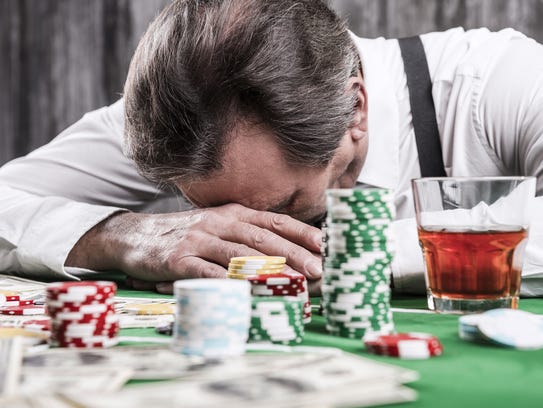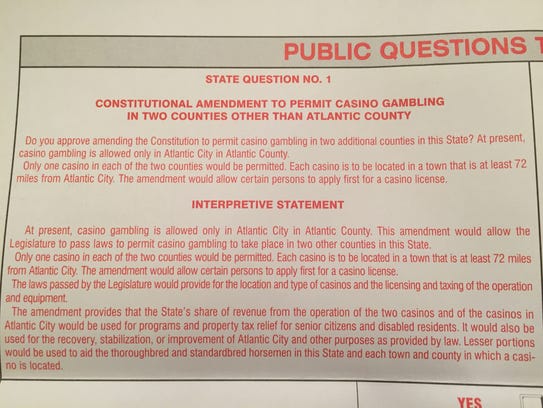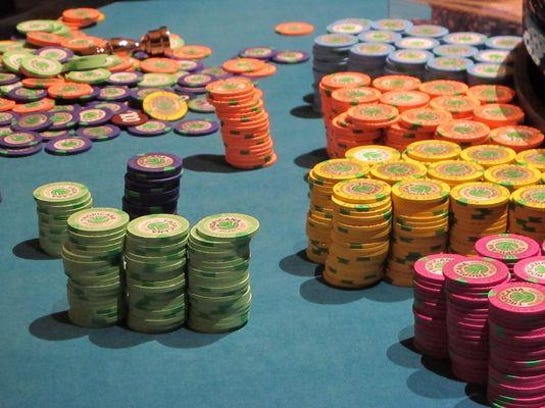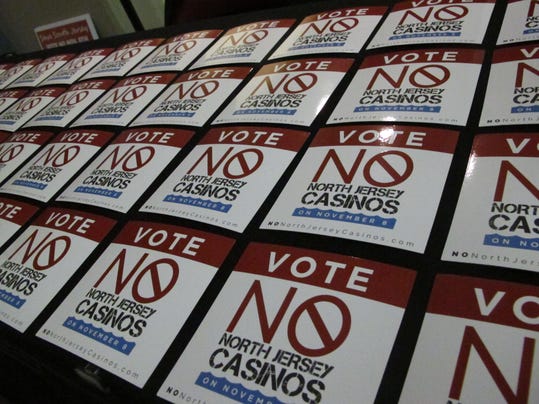
Atlantic City casino’s woes have many causes, but the growing popularity of competing casinos in Pennsylvania and beyond figure big in the industry’s downturn. Here, Sugar House patrons explain why they no longer drive to A.C.
Gambling hooked Sam quick. He started in college, placing bets on sports. Then it escalated to online casino games.
Atlantic City was too far away for the Bergen County resident, so he stayed home, playing for six hours at a time on his computer.
“It got to be tens of thousands of dollars every day,” said Sam, who asked that his last name be withheld. “I didn’t always lose. I’d win, but as a prone gambler I didn’t know how to stop.”
To cover his losses, Sam said he stole from his employer. It landed him in prison, which is where he began the long road to recovery.
“It’s been over five years since my last bet,” he said.
RELATED: Atlantic City: A community in crisis

Casinos are the No. 1 trigger for gambling addicts in New Jersey, one recovery official said. (Photo: Getty Images/iStockphoto)
Now 40 and back in the workforce, Sam is understandably wary of Public Question No. 1 in Tuesday’s election -- whether to approve the building of two casinos in northern New Jersey. If it passes, he might have to re-route some of his driving in the area, the better to avoid temptation.
But Sam is not crusading against casinos and does not begrudge those who gamble responsibly. He is concerned, however, that gambling’s human toll barely seems to register in public discourse. Talk about the referendum has centered on its economic impact and who supposedly will benefit.
For example: The interpretive statement on Tuesday’s ballot states that gambling revenue will help senior citizens, the disabled, Atlantic City and the racing industry.
Not a word about gambling addicts.
RELATED: Don't toss dice on casino question
A bigger problem than you think
“Gambling is socially acceptable -- you don’t see any immediate affects,” Sam said. “When someone’s drunk or high, you can see it having a direct impact on them at that moment. A gambler who just lost $10,000, you may not see that direct impact.”
It exists, though, in alarming numbers.
“When a Casino is built, there is a 5 percent increase in problem gamblers within a 50-mile radius,” said Neva Pryor, executive director of New Jersey’s Council on Compulsive Gambling. “That is a national statistic.”

Public Question No. 1 on a sample ballot (Photo: Jerry Carino)
Pryor said 3 percent of the population has an acknowledged gambling problem. In New Jersey, that’s 270,000 people.
“That’s not counting people who have a problem and are not coming forward with it,” Pryor said.
Yet compulsive gambling flies under the public radar compared to, say, drug and alcohol abuse -- behaviors we’ve come to view as illnesses. Society dismisses gambling as a character flaw, Pryor said, when in fact it’s a public health issue.
As she points out, it’s like telling a diabetic to just stop having high blood sugar.
“There are seniors who would rather go to a casino than pay for their medications,” she said. “I’ve had grown men call up on the phone crying, begging for help. I’ve had younger people calling up because their parents have just gone wild and blown all their money.”
'I have a hard time every day'
Casino gambling is the most common reason for calls to the Council’s hotline, Pryor said, ahead of the lottery, sports betting and horse racing. The biggest demographic is over-50, especially retirees with time on their hands. That pool is enlarging as baby boomers exit the work world in droves.
“I would love for (the public) to take gambling addiction seriously,” Pryor said. “I have a hard time every day making sure there are prevention services and intervention services for people who have problems.”
 Buy Photo
Buy PhotoNew Jersey voters will decide Nov. 8 whether to approve the expansion of gambling to two sites in North Jersey. (Photo: FILE PHOTO)
When Sam sought help, he found plenty of gamblers anonymous meetings but few clinical counselors versed in his particular addiction.
“I would just hope that legislators look at prevention programs, and that the casino industry looks at making sure they’re not sending marketing materials to people who exclude themselves (from such mailings),” Sam said. “I excluded myself, and sometime later I got marketing materials from a casino.”
We know how this movie ends. This state was supposed to fund anti-smoking initiatives with its cigarette tax, but doesn’t. How could anybody trust Trenton to help people with casino money?
“There was an intent for something good when the casinos came to Atlantic City,” Sam said. “The purpose was to help seniors and the elderly, and over time that gets whittled away.”
More casinos put vulnerable people at risk, especially seniors and addicts in early recovery. That doesn’t have to sway your vote, but it belongs in the conversation.
For help with a gambling problem, call or text the Council on Compulsive Gambling’s hotline at 800-522-4700 or visit ncpgambling.org/chat.
Carino’s Corner appears Mondays in the Asbury Park Press. Contact Jerry at This e-mail address is being protected from spambots. You need JavaScript enabled to view it .
Read or Share this story: http://on.app.com/2f8ZcIw
| < Prev | Next > |
|---|

